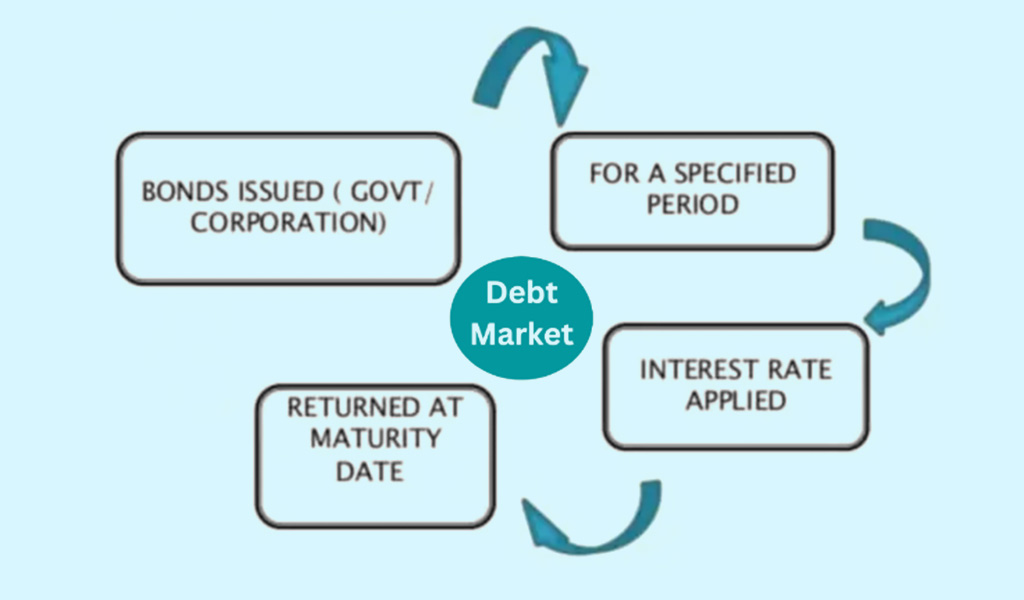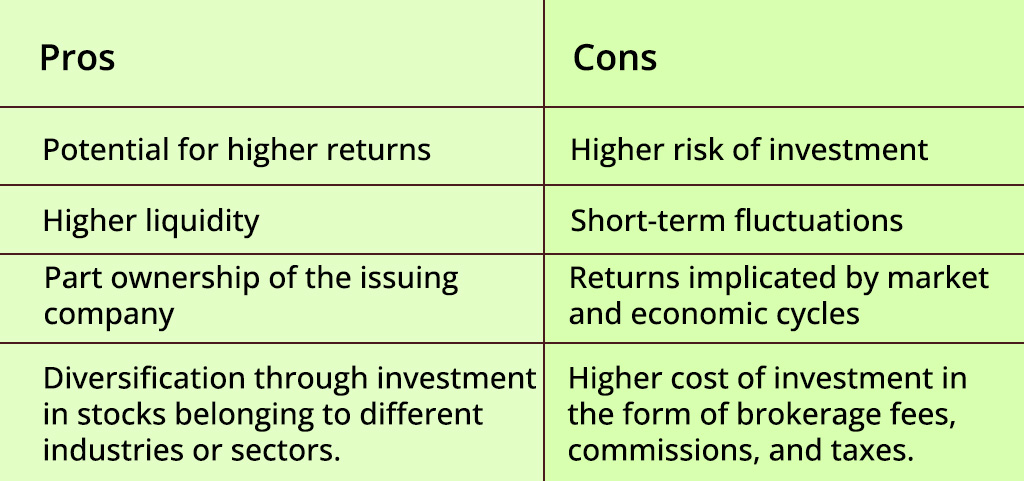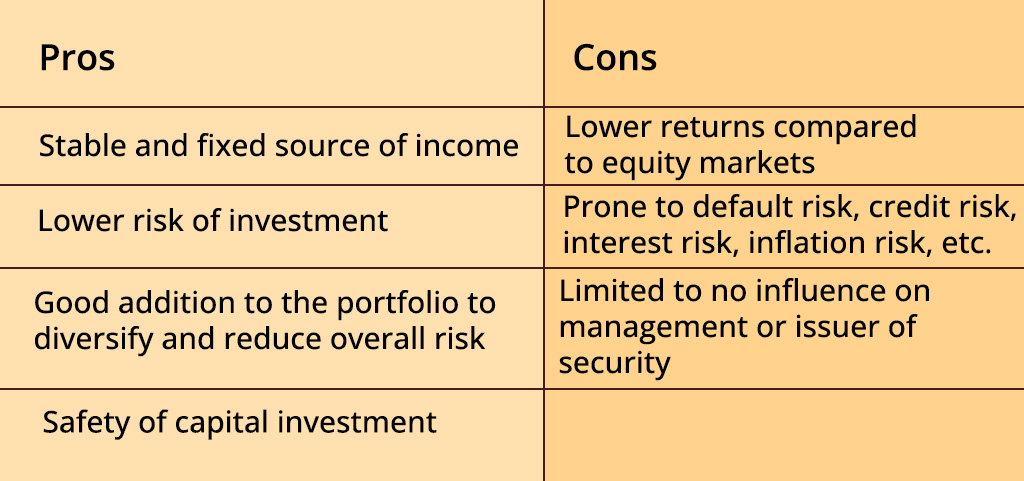 Investment in stock markets is not limited to investing in pure stocks. It has an ocean of investing opportunities but primarily these investments are mostly categorised into equity and debt instruments. The equity and debt markets present a diverse class of investments that have their own set of pros and cons. Discussed hereunder is the meaning of equity and debt markets and the primary differences between the two. Read More: Relationship between macroeconomic factors and Indian stock markets
Investment in stock markets is not limited to investing in pure stocks. It has an ocean of investing opportunities but primarily these investments are mostly categorised into equity and debt instruments. The equity and debt markets present a diverse class of investments that have their own set of pros and cons. Discussed hereunder is the meaning of equity and debt markets and the primary differences between the two. Read More: Relationship between macroeconomic factors and Indian stock markets
 Equity markets are the platform to buy and sell shares of public limited companies, i.e., companies listed on stock exchanges. Shares are available for the public subscription initially through the company’s IPO (Initial Public Offer) and then through open market trading. Equity markets can be classified into primary markets and secondary markets. The former is where shares of a company are offered to the public through IPO or FPO. on the other hand, the secondary market is where investors and traders can buy stocks other than from the IPO or FPO route. This secondary market is also referred to as the derivative market where investors can trade in futures and options, forward contracts, etc. which derive their value from the underlying assets (stocks). Equity markets are highly volatile but have the potential to provide the highest returns in the long term. The types of trades in the equity markets include intraday traders, position trading, and BTST (Buy Today and Sell Tomorrow).
Equity markets are the platform to buy and sell shares of public limited companies, i.e., companies listed on stock exchanges. Shares are available for the public subscription initially through the company’s IPO (Initial Public Offer) and then through open market trading. Equity markets can be classified into primary markets and secondary markets. The former is where shares of a company are offered to the public through IPO or FPO. on the other hand, the secondary market is where investors and traders can buy stocks other than from the IPO or FPO route. This secondary market is also referred to as the derivative market where investors can trade in futures and options, forward contracts, etc. which derive their value from the underlying assets (stocks). Equity markets are highly volatile but have the potential to provide the highest returns in the long term. The types of trades in the equity markets include intraday traders, position trading, and BTST (Buy Today and Sell Tomorrow).
 Similar to equity markets, debt markets are the platform where investors can buy and sell various types of debt instruments. Debt instruments are in the form of loans provided by the investors to the debt issuers and they get returns in the form of fixed interest on these instruments. Debt markets are also classified into primary and secondary markets where investors can directly subscribe to the debt instruments from the issuers of such instruments in the primary markets. Secondary markets cater to investors who want to invest in debt instruments but did not get a chance to do so at the time of their issue. Liquidity is therefore the key feature of the secondary markets. The types of instruments available in the debt markets include corporate bonds, government bonds, municipal bonds, mortgage-backed securities, and asset-backed securities.
Similar to equity markets, debt markets are the platform where investors can buy and sell various types of debt instruments. Debt instruments are in the form of loans provided by the investors to the debt issuers and they get returns in the form of fixed interest on these instruments. Debt markets are also classified into primary and secondary markets where investors can directly subscribe to the debt instruments from the issuers of such instruments in the primary markets. Secondary markets cater to investors who want to invest in debt instruments but did not get a chance to do so at the time of their issue. Liquidity is therefore the key feature of the secondary markets. The types of instruments available in the debt markets include corporate bonds, government bonds, municipal bonds, mortgage-backed securities, and asset-backed securities.
The key differences between equity markets and debt markets are highlighted below. [table id=4 /]
The pros and cons of investing in equity and debt markets are highlighted below.


Equity markets and debt markets both provide ample investment opportunities for the investors based on their risk perception and returns expectations. The tenure of investment is another important factor that influences the investment decision between equity markets and debt markets. Investors need to thoroughly understand the differences between equity and debt markets to make optimum investment decisions an create a healthy investment portfolio that meets their financial goals in the most optimum manner.

The stock market in India has fascinated general Indian masses for long, perhap...

Most Often, gold and stocks are the investment showgrounds that attracts Indian ...

For analyzing the stock markets, Fundamental Analysis and Technical Analysis are...

A phenomenon of Open v/s high low When you are into the work of stock trading, ...